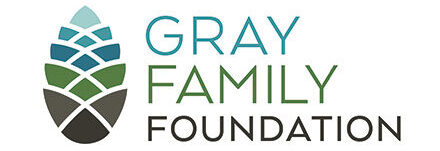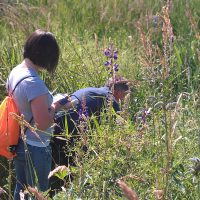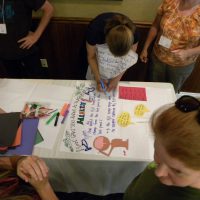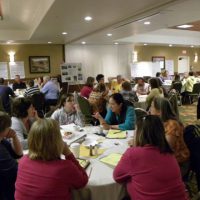Since the mid-1980s the Oregon Natural Resources Education Program(ONREP) has focused on helping teachers to engage students in hands-on, interactive, and investigative strategies that are relevant, meaningful, place-based and meet state standards for student achievement. Says director Susan Sahnow, the program’s goal is to get teachers interested in getting their students outside and helping them do it in a way that contributes to student success and achievement. Sahnow continued, “We’re not adding something to their plate. We’re showing them how to integrate the environment into what they already teach; in other words use it as context for teaching. Everything we do is linked to the state standards for teachers. We’re continually cross-referencing and correlating to those standards so that they’re relevant to what they’re doing in the classroom, relevant to what is happening in their community and in the world.”
One ONREP summer institute, supported by the Gray Family Fund, focuses on service learning as a strategy for bringing learning and community service together. Sahnow said, “It’s about invasive weeds. The teachers are together for an entire week. They build understanding about ecosystems and the impact of invasives, learn strategies for student engagement, and share about what that content means for them as teachers, and how they would implement it with their students. They actually engage in a service learning project, so they try the process as students before they engage their own students. This allows them to consider challenges they may encounter as well as think creatively. Each teacher creates an invasive weed teaching unit which includes a project in their community.



